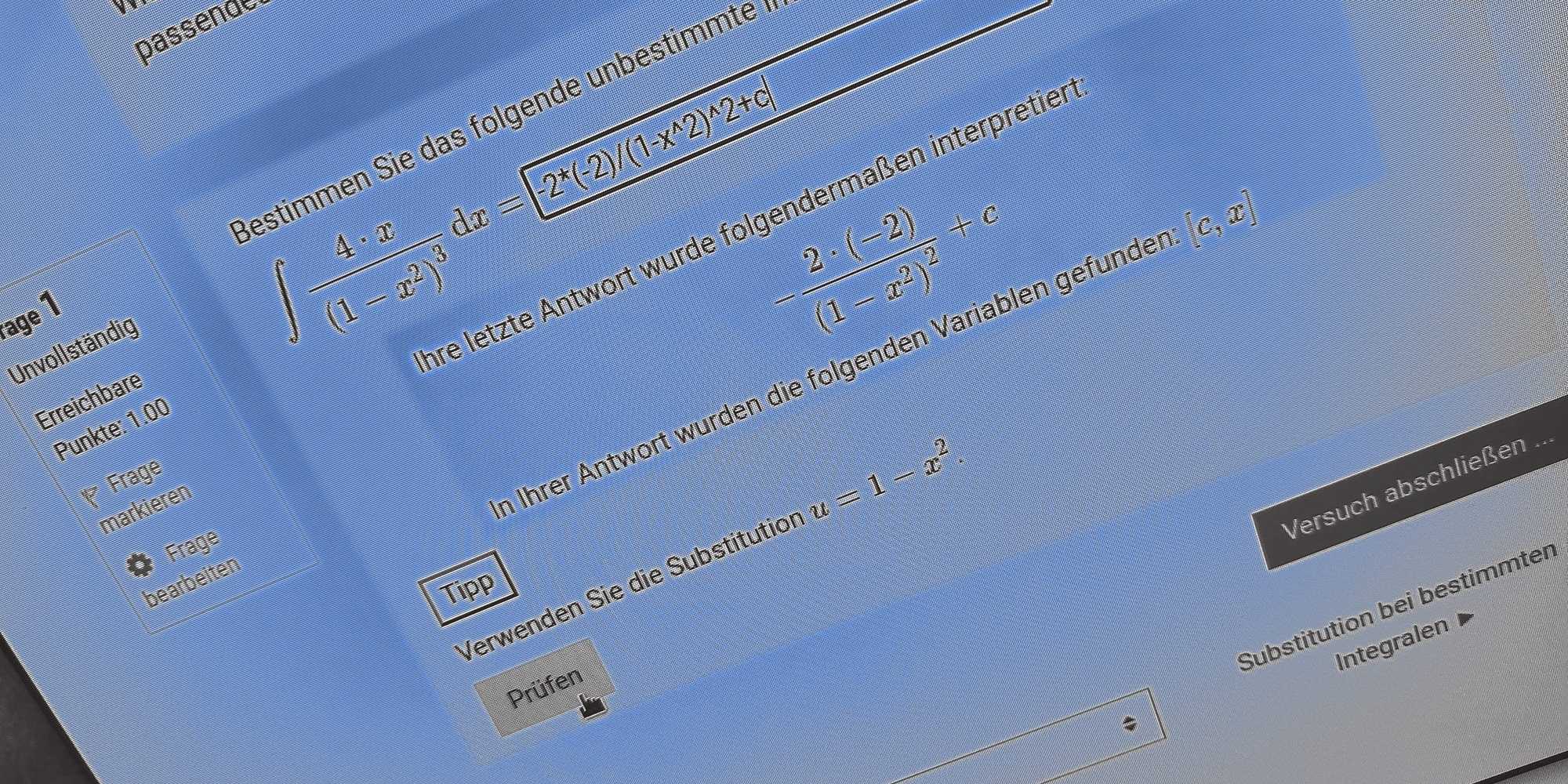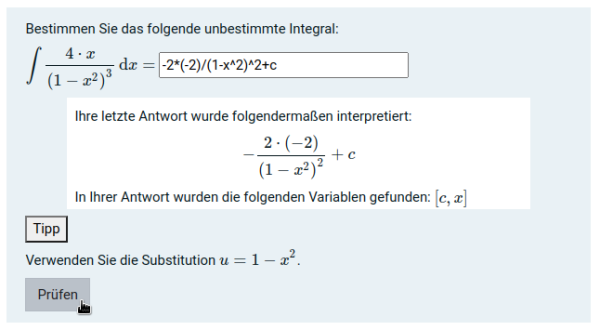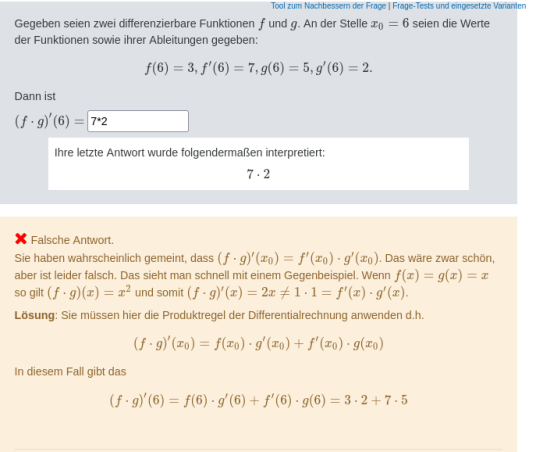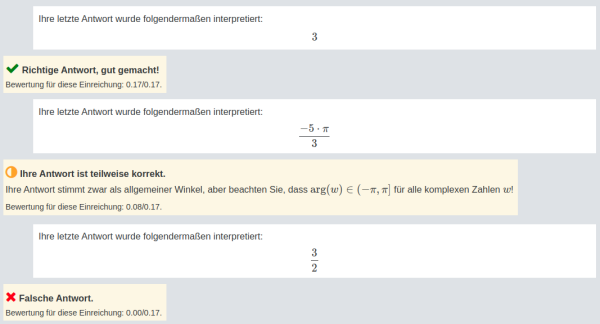What benefits are there for your students?
Steiger: Mastering the fundamentals of mathematics takes a great deal of practise. STACK exercises allow the students to practise as much as they need and whenever they want. And they get feedback right away. This is proving really popular, which is reflected both in student feedback about our courses and in the stats: students are practising frequently and for long periods.
Akveld: And that in turn helps us as lecturers: the more our students practise, the easier it is for us to see where they’re making mistakes. STACK brings all this information together in one place and, based on analyses, we can incorporate specific tips and hints into the exercises.
In addition to the collection of problems, you’ve also developed an integral trainer. What is that for?
Steiger: We’ve noticed a large disparity in skill levels when it comes to computing integrals. Depending on what students were taught at secondary school and what experience they have, some are proficient when they arrive, while others still need practise. When you’ve got 700 students in a lecture, having a tool that the students can use to practise exactly this aspect of mathematics is extremely welcome.
How does the trainer work?
Steiger: Using the integral trainer, students can practise the various methods they must master – first individually and as often as necessary, and with assistance in the form of tips or automated feedback. Later on, they can tackle less obvious problems that require them to identify and apply the correct method. We put a lot of thought into how we structure the exercises and the feedback before we programmed the trainer with STACK’s help. In this way, we showed that the potential of this tool extends beyond merely digitalising collections of problems to include actual training units with specific structures and processes.
Could the tool be suitable for use outside ETH?
Steiger: Yes, we’re getting enquiries from secondary schools in Switzerland and abroad. STACK questions have a very active community – the whole thing is open source (editor’s note: the source code is in the public domain) and there is a vibrant and immediate exchange of ideas. The advantage of STACK questions is that you can share them very easily. It’s all mutually beneficial.
How does ETH compare internationally in using STACK?
Steiger: Although we started using STACK only recently, our integral trainer has already attracted some interest. At the head of the pack is the University of Edinburgh, where Chris Sangwin, who developed STACK, teaches. The UK’s Open University also makes extensive use of the tool. In many countries, multiple universities collaborate to generate shared databases of maths problems for STACK. Bavaria wants to roll out STACK at its high schools. It’s a topic that’s now really gaining momentum.









Comments
This is a great development and will make a significant difference - well done DR Meike and DR Andreas. As an aside: In German it is OK to use Herr and Frau. In English, it is derogatory to use Mr and Ms if one has a higher title. I believe the culture of respect in the English language is important so that those who assign titles do so appropriately!
Thank you for your comment and your input. We've changed the corresponding text passages.